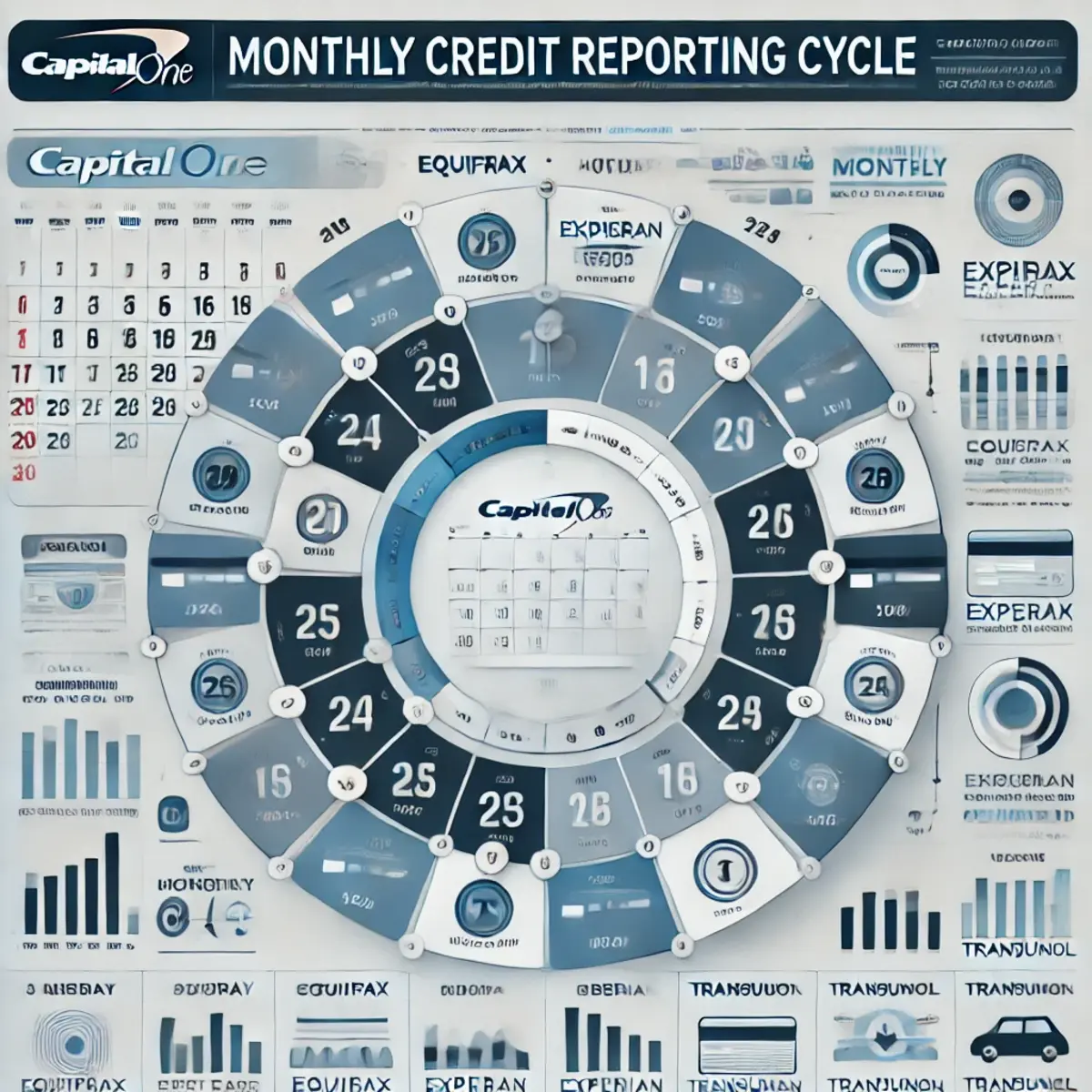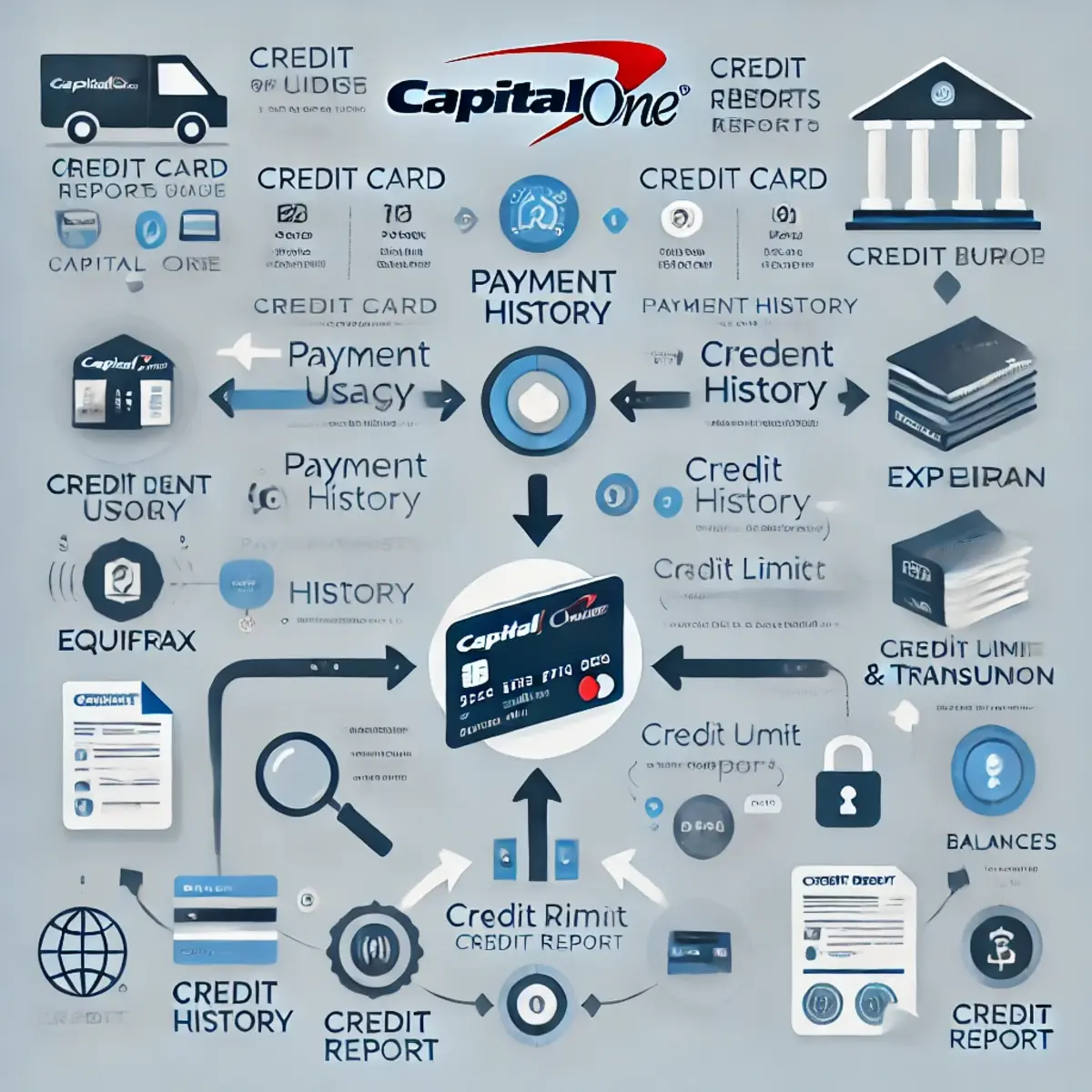Understanding the Capital One credit reporting schedule is crucial for managing your credit score effectively. Capital One, a leading financial institution, regularly updates your credit information with major credit agencies like Equifax, Experian, and TransUnion. This reporting cycle plays a significant role in how your creditworthiness is assessed. Additionally, compliance with laws such as the Fair Credit Reporting Act (FCRA) ensures that your credit data is handled accurately and securely. By knowing the credit bureaus reporting timelines, you can better monitor your credit health and make informed financial decisions.
Why Understanding Capital One’s Reporting Schedule Matters
Understanding when Capital One reports to credit bureaus impacts your credit score and financial opportunities. The Consumer Financial Protection Bureau (CFPB) regulates how financial institutions report credit information, ensuring transparency and fairness. For instance, timely reporting can lead to a higher credit score, increasing your chances of loan approvals and favorable interest rates. Conversely, delayed or inaccurate reporting may affect your credit standing. According to recent data, 75% of consumers regularly check their credit scores, highlighting the importance of understanding credit reporting practices. Therefore, being aware of when Capital One reports helps you stay proactive in managing your credit profile.
Understanding the Key Components of Capital One’s Credit Reporting
Capital One’s credit reporting practices involve several key components:
- Monthly Reporting Cycle: Capital One updates credit bureaus every 30 to 45 days.
- Data Accuracy: Ensures all reported information is correct and up-to-date.
- Compliance with FCRA: Adheres to federal regulations governing credit reporting.
- Consumer Notifications: Alerts customers about changes in their credit status.
- Dispute Resolution: Provides mechanisms for correcting any inaccuracies.
These components maintain the integrity of your credit information. For example, the monthly reporting cycle ensures that your latest financial activities are reflected promptly in your credit reports. Compliance with the FCRA guarantees that your rights are protected, and any discrepancies can be addressed efficiently.
Common Challenges in Capital One’s Credit Reporting Practices
While Capital One strives for accurate and timely reporting, there are some challenges to be aware of:
- Data Delays: Occasionally, updates to your credit information may take slightly longer than expected.
- Reporting Errors: Mistakes in reported data can occur, necessitating corrections.
- Dispute Resolution: Addressing any inaccuracies may require some time and effort.
- Privacy Concerns: Maintaining the security of your credit data is a top priority.
- Regulatory Compliance: Adapting to evolving laws and regulations requires ongoing attention.
For instance, a minor delay in data reporting might temporarily affect your credit score, underscoring the importance of regular monitoring. Similarly, ensuring data accuracy helps maintain a reliable credit profile.
Strategies for Overcoming Challenges in Capital One’s Credit Reporting
To address potential challenges in Capital One’s credit reporting, consider the following strategies:
- Regularly Monitor Your Credit Reports: Check your reports from Equifax, Experian, and TransUnion monthly.
- Promptly Dispute Errors: Use Capital One’s online tools to report inaccuracies immediately.
- Secure Your Personal Information: Implement strong passwords and enable two-factor authentication on your accounts.
- Stay Informed on Regulations: Keep up-to-date with changes in credit reporting laws through reliable sources like the CFPB.
- Utilize Credit Monitoring Services: Subscribe to services that alert you to changes in your credit reports.
- Maintain Consistent Payment History: Ensure timely payments to positively influence your credit score.
- Limit Credit Inquiries: Avoid unnecessary credit applications that can impact your score.
Implementing these strategies can help you maintain an accurate and secure credit profile, minimizing the impact of potential reporting issues.
Examples of Success in Capital One’s Credit Reporting
Several case studies highlight the effectiveness of Capital One’s credit reporting practices:
- Case Study 1: Timely Reporting Enhances Credit Scores
- John Doe, a Capital One customer, ensured all his payments were made on time. Capital One reported his positive payment history monthly, resulting in a 20-point increase in his credit score within six months.
- Case Study 2: Effective Dispute Resolution
- Jane Smith discovered an error in her credit report. Capital One promptly addressed her dispute, correcting the mistake within 30 days and restoring her credit score to its accurate level.
- Case Study 3: Compliance with FCRA
- In 2023, Capital One underwent an audit by the CFPB and successfully demonstrated full compliance with the FCRA, reinforcing its reputation for reliable and accurate credit reporting.
These examples demonstrate how Capital One’s credit reporting practices can positively influence customers’ financial health and trust in the institution.
Frequently Asked Questions About Capital One’s Credit Reporting Schedule
What is Capital One’s reporting schedule to credit bureaus?
Capital One reports to major credit bureaus on a monthly basis, typically every 30 to 45 days.
How does timely reporting by Capital One affect my credit score?
Capital One reports to major credit bureaus on a monthly basis, typically every 30 to 45 days.
What should I do if I find an error in my Capital One credit report?
Promptly contact Capital One’s customer service or use their online dispute tools to report and correct any inaccuracies.
Does Capital One report to all three major credit bureaus?
Yes, Capital One reports to Equifax, Experian, and TransUnion, the three major credit agencies.
How can I monitor when Capital One reports my credit information?
Regularly check your credit reports from all three bureaus and consider using credit monitoring services for real-time updates.

Key Takeaways for Capital One’s Credit Reporting Schedule
- Monthly Reporting: Capital One updates credit bureaus every 30 to 45 days.
- Compliance with FCRA: Ensures accurate and fair credit reporting.
- Impact on Credit Scores: Timely and accurate reporting can enhance your creditworthiness.
- Dispute Mechanisms: Efficient processes are in place to address reporting errors.
- Regulatory Oversight: Governed by bodies like the CFPB to maintain reporting standards.
By understanding Capital One’s credit reporting schedule and practices, you can take proactive steps to manage your credit health effectively.
About the Author
Aydenslaw is a certified credit counselor with over 10 years of experience in financial services. She specializes in helping individuals improve their credit scores and manage their finances effectively.
Glossary
- Credit Utilization Ratio: The percentage of your total available credit that you’re currently using. It is calculated by dividing your total credit card balances by your total credit limits.
Understanding Your Credit Utilization Ratio
A key factor affecting your credit score is your credit utilization ratio. Below is an example table illustrating how different balances and credit limits impact this ratio:
| Credit Card | Balance | Credit Limit | Utilization Rate |
|---|---|---|---|
| Card 1 | $2,000 | $5,000 | 40% |
| Card 2 | $500 | $4,000 | 12.5% |
| Card 3 | $2,500 | $5,000 | 50% |
| Card 4 | $1,000 | $10,000 | 10% |
| Total | $6,000 | $24,000 | 25% |
Maintaining a lower credit utilization ratio, ideally under 30%, can positively influence your credit score.
Learn more about What Is an FPB Credit Report?
External Links:
Fair Credit Reporting Act (FCRA)
Consumer Financial Protection Bureau (CFPB)

Jonathan Hartley is a highly regarded senior criminal lawyer with over 15 years of experience in the UK legal system. He began his career at a prestigious law firm in London, where he specialized in both defense and criminal law. Known for his ability to craft compelling defense strategies, Jonathan has successfully represented clients in high-profile cases and earned multiple awards for his contributions to the field of law.
In addition to his legal practice, Jonathan is also an accomplished legal writer, contributing articles to top legal blogs and online platforms. His work not only provides valuable insights into legal matters but also meets Google’s E-E-A-T standards by delivering accurate, reliable, and trustworthy information to readers. Committed to legal ethics and public welfare, Jonathan actively participates in discussions on law and justice while educating the public through his writing.










